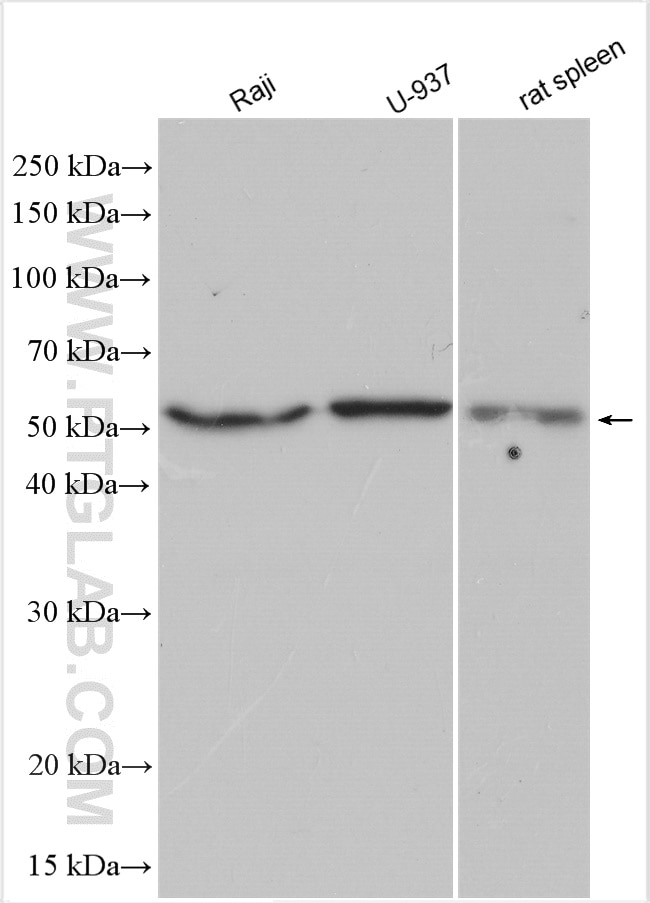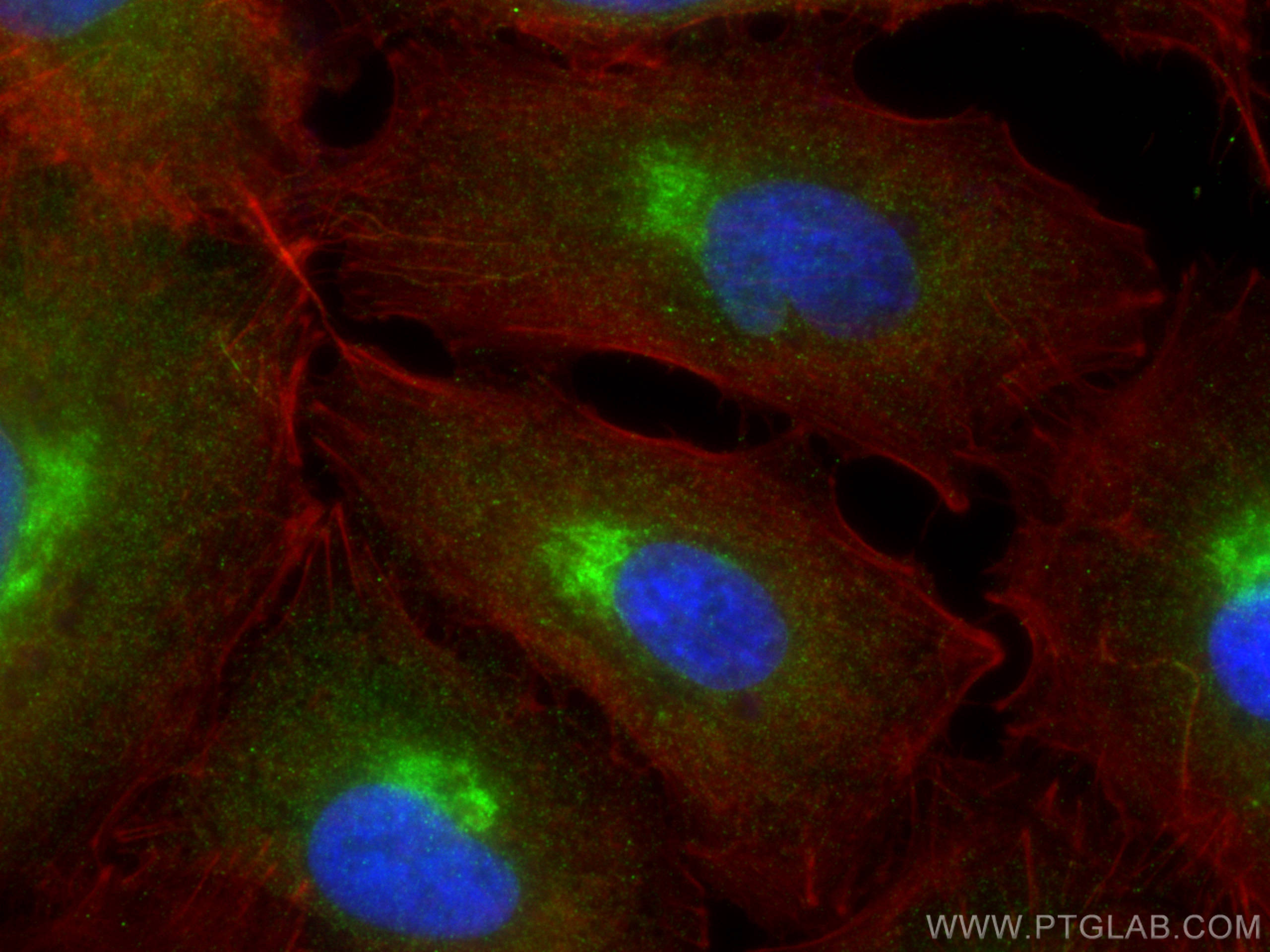Validation Data Gallery
Tested Applications
| Positive WB detected in | Raji cells, U-937 cells, rat spleen tissue |
| Positive IF/ICC detected in | A549 cells |
Recommended dilution
| Application | Dilution |
|---|---|
| Western Blot (WB) | WB : 1:500-1:3000 |
| Immunofluorescence (IF)/ICC | IF/ICC : 1:200-1:800 |
| It is recommended that this reagent should be titrated in each testing system to obtain optimal results. | |
| Sample-dependent, Check data in validation data gallery. | |
Product Information
30201-1-AP targets FCGR3B/CD16b in WB, IF/ICC, ELISA applications and shows reactivity with Human, rat samples.
| Tested Reactivity | Human, rat |
| Host / Isotype | Rabbit / IgG |
| Class | Polyclonal |
| Type | Antibody |
| Immunogen |
Recombinant protein 相同性解析による交差性が予測される生物種 |
| Full Name | Fc fragment of IgG, low affinity IIIb, receptor (CD16b) |
| Calculated molecular weight | 26 kDa |
| Observed molecular weight | 55 kDa |
| GenBank accession number | NM_000570 |
| Gene Symbol | FCGR3B |
| Gene ID (NCBI) | 2215 |
| RRID | AB_3086262 |
| Conjugate | Unconjugated |
| Form | |
| Form | Liquid |
| Purification Method | Antigen affinity purification |
| UNIPROT ID | O75015 |
| Storage Buffer | PBS with 0.02% sodium azide and 50% glycerol{{ptg:BufferTemp}}7.3 |
| Storage Conditions | Store at -20°C. Stable for one year after shipment. Aliquoting is unnecessary for -20oC storage. |
Background Information
CD16 is a low affinity Fc receptor. It has been identified as Fc receptors FcγRIIIa (CD16a) and FcγRIIIb (CD16b), encoded by two nearly identical genes, FCGR3A and the FCGR3B. In humans, FcγRIIIa/CD16a is a type I transmembrane receptor expressed on macrophages and NK cells. FcγRIIIb/CD16b is a GPI-linked Fc-receptor highly expressed on neutrophils. The two proteins differ by only four amino acid residues in the mature proteins(PMID: 30361439). FCGR3B/CD16b can be detected as 26 kDa (PMID: 34108956; 36096917) and 50-75 kDa (PMID: 30655272; 18208407). The antibody is specific for FCGR3B/CD16b.
Protocols
| Product Specific Protocols | |
|---|---|
| IF protocol for FCGR3B/CD16b antibody 30201-1-AP | Download protocol |
| WB protocol for FCGR3B/CD16b antibody 30201-1-AP | Download protocol |
| Standard Protocols | |
|---|---|
| Click here to view our Standard Protocols |


